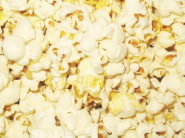EMBARGOED FOR RELEASE | August 18, 2009
Whole grain cereals, popcorn rich in antioxidants, not just fiber, new research concludes
WASHINGTON, Aug. 18, 2009 — In a first-of-its kind study, scientists reported today at the 238th National Meeting of the American Chemical Society (ACS) that snack foods like popcorn and many popular breakfast cereals contain “surprisingly large” amounts of healthful antioxidant substances called “polyphenols.”
Polyphenols are a major reason why fruits and vegetables — and foods like chocolate, wine, coffee, and tea — have become renowned for their potential role in reducing the risk of heart disease, cancer, and other diseases.
Until now, however, no one knew that commercial hot and cold whole grain cereals — regarded as healthful for their fiber content — and snack foods also were a source of polyphenols.
Media Inquiries:
Michael Bernstein
202-249-4014 (Meeting, Aug. 15-19)
202-872-6042 (Before Aug. 15)
Michael Woods
202-249-4014 (Meeting, Aug. 15-19)
202-872-6293 (Before Aug. 15)
“Early researchers thought the fiber was the active ingredient for these benefits in whole grains, the reason why they may reduce the risk of cancer and coronary heart disease,” said Joe Vinson, Ph.D., who headed the new study. “But recently, polyphenols emerged as potentially more important. Breakfast cereals, pasta, crackers, and salty snacks constitute over 66 percent of whole grain intake in the U.S. diet.”
Vinson, a chemist at the University of Scranton in Pennsylvania, said “We found that, in fact, whole grain products have comparable antioxidants per gram to fruits and vegetables. This is the first study to examine total phenol antioxidants in breakfast cereals and snacks, whereas previous studies have measured free antioxidants in the products.”

Polyphenols are a group of chemicals found in many fruits, vegetables, and other plants, such as berries, walnuts, olives, tea leaves and grapes. Known as antioxidants, they remove free radicals from the body. Free radicals are chemicals that have the potential to cause damage to cells and tissues in the body.
The whole grain cereal with the most antioxidants are made with wheat, with corn, oats and rice cereals following in descending order, according to Vinson. He also noted that raisin bran has the highest amount of antioxidants per serving, primarily due to the raisins.
Bran cereals made from wheat overall do not have more antioxidants than wheat cereals, though they do have more fiber, he said. In other findings, he said that whole grain flours are very high in antioxidants; whole grain snacks have slightly lower levels of antioxidants than cereals; of snacks, popcorn has the highest level of antioxidants; and there is a wide variation in the amount of antioxidants in each class of cold cereal.
Internal Funding for the study was from the University of Scranton.
###
— Michael Bernstein


